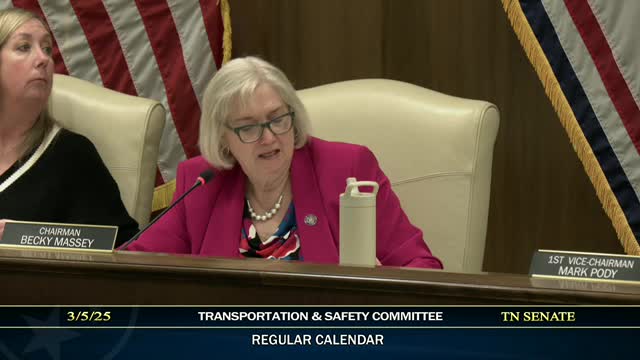Article not found
This article is no longer available. But don't worry—we've gathered other articles that discuss the same topic.
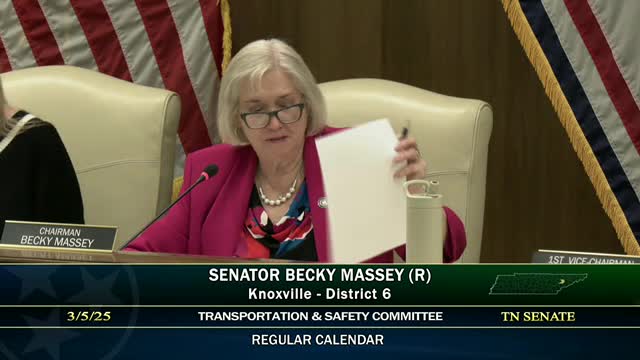
Transportation and Safety Committee advances multiple bills; votes at a glance
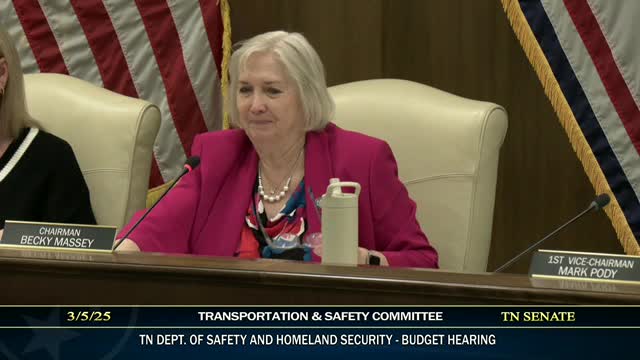
Department of Safety presents budget increases for troopers, centers and radio system; committee approves budget with amendment
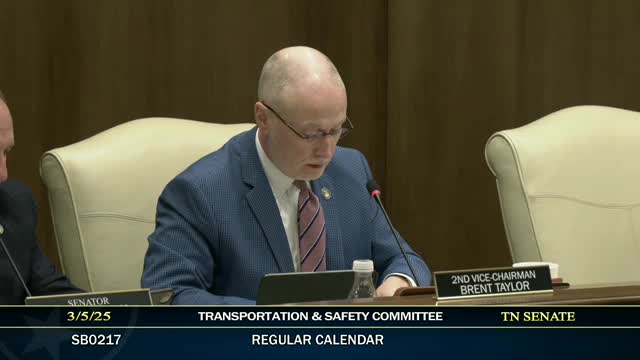
Committee advances bill allowing TDOT MOUs to preplan homeless‑encampment responses; advocates warn of costs
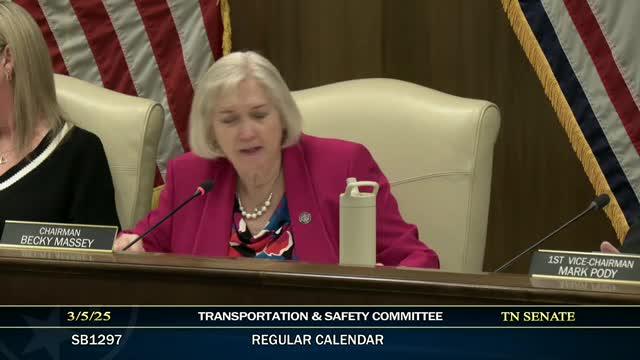
Committee approves bill setting privacy limits for digital driver's licenses, bars use for voting
